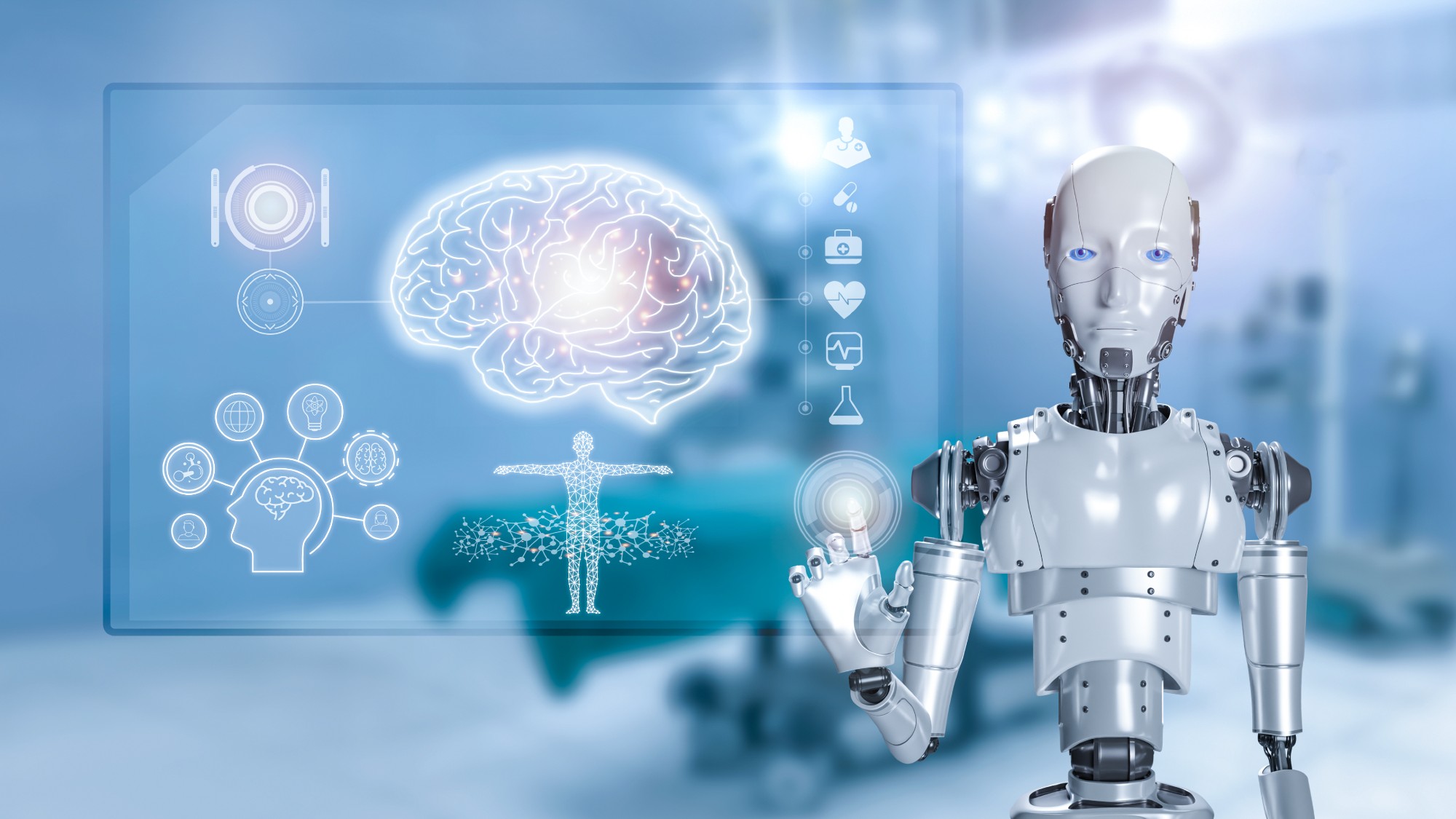GPT-5: Not quite ready to take over the world
OpenAI rolls back its GPT-5 model after a poorly received launch

A free daily email with the biggest news stories of the day – and the best features from TheWeek.com
You are now subscribed
Your newsletter sign-up was successful
The much-anticipated rollout of OpenAI's new GPT-5 artificial intelligence model was so poorly received that it may have jammed the AI hype engine, said Dave Lee in Bloomberg. After pumping up GPT-5's launch with an image of the Star Wars Death Star and claims of near superintelligence, OpenAI CEO Sam Altman was forced into an embarrassing rollback, restoring access to an older model for displeased users. Investors in other AI companies largely shrugged off the stumble—good news for Wall Street, because the field is a singular driver of stock market records. But "what sets the narrative around AI progress (or lack of) is practical application, and it's here where all AI companies are still falling short." One piece of research from McKinsey should give pause: While 8 of out 10 companies surveyed said they were implementing generative AI in their business, the consultancy group observed, just as many said there has been "no significant bottom-line impact."
Altman promised that GPT-5 would serve as "a legitimate Ph.D.-level expert in anything," said Gary Marcus in his Substack newsletter. In fact, the new model delivered the same old "ridiculous errors and hallucinations." Users posted examples of GPT-5 struggling with basic reading and summarization, unable to correctly count the number of b's in "blueberry," and mislabeling handlebars and wheels on a bike. "It's no hyperbole to say that GPT-5 has been the most hyped and most eagerly anticipated AI product release in an industry thoroughly deluged in hype," said Brian Merchant, also in a Substack newsletter. "For years, it was spoken about in hushed tones as a fear-some harbinger of the future." But now all the talk of what OpenAI calls AGI, or artificial general intelligence, is just getting "waved away." It seems that OpenAI needed to demonstrate progress to investors and partners ahead of a pre-IPO sale of employee shares. Still, there "is a cohort of boosters, influencers, and backers who will promote OpenAI's products no matter the reality on the ground."
Some of the unhappiness about GPT-5 may be less technical than emotional, said Dylan Freedman in The New York Times. It's not clear that the new version is actually worse than the old one. But many users had developed an emotional link to the chatbot, asking it deeply personal questions. "And then, without warning, ChatGPT changed." The old version was often criticized as "sycophantic"; the new one, by contrast, is far less "warm and effusive." That was intentional: OpenAI found that an AI chatbot that was too human-like led frequently to "delusional thinking." But many perfectly stable users, it turned out, had built a relationship with the chatbot, and they've found GPT-5 to be a chilly companion.
The Week
Escape your echo chamber. Get the facts behind the news, plus analysis from multiple perspectives.

Sign up for The Week's Free Newsletters
From our morning news briefing to a weekly Good News Newsletter, get the best of The Week delivered directly to your inbox.
From our morning news briefing to a weekly Good News Newsletter, get the best of The Week delivered directly to your inbox.
A free daily email with the biggest news stories of the day – and the best features from TheWeek.com
-
 Political cartoons for February 15
Political cartoons for February 15Cartoons Sunday's political cartoons include political ventriloquism, Europe in the middle, and more
-
 The broken water companies failing England and Wales
The broken water companies failing England and WalesExplainer With rising bills, deteriorating river health and a lack of investment, regulators face an uphill battle to stabilise the industry
-
 A thrilling foodie city in northern Japan
A thrilling foodie city in northern JapanThe Week Recommends The food scene here is ‘unspoilt’ and ‘fun’
-
 Are AI bots conspiring against us?
Are AI bots conspiring against us?Talking Point Moltbook, the AI social network where humans are banned, may be the tip of the iceberg
-
 Silicon Valley: Worker activism makes a comeback
Silicon Valley: Worker activism makes a comebackFeature The ICE shootings in Minneapolis horrified big tech workers
-
 AI: Dr. ChatGPT will see you now
AI: Dr. ChatGPT will see you nowFeature AI can take notes—and give advice
-
 Moltbook: the AI social media platform with no humans allowed
Moltbook: the AI social media platform with no humans allowedThe Explainer From ‘gripes’ about human programmers to creating new religions, the new AI-only network could bring us closer to the point of ‘singularity’
-
 Claude Code: Anthropic’s wildly popular AI coding app
Claude Code: Anthropic’s wildly popular AI coding appThe Explainer Engineers and noncoders alike are helping the app go viral
-
 Will regulators put a stop to Grok’s deepfake porn images of real people?
Will regulators put a stop to Grok’s deepfake porn images of real people?Today’s Big Question Users command AI chatbot to undress pictures of women and children
-
 Most data centers are being built in the wrong climate
Most data centers are being built in the wrong climateThe explainer Data centers require substantial water and energy. But certain locations are more strained than others, mainly due to rising temperatures.
-
 The dark side of how kids are using AI
The dark side of how kids are using AIUnder the Radar Chatbots have become places where children ‘talk about violence, explore romantic or sexual roleplay, and seek advice when no adult is watching’